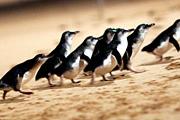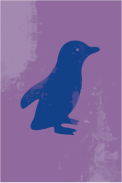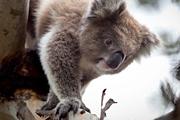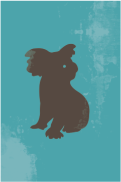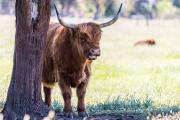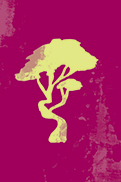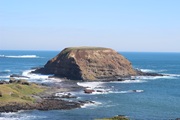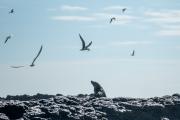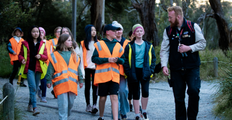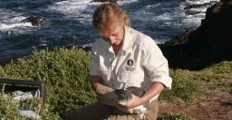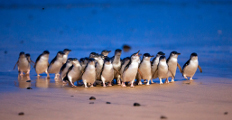Switch off to help protect shearwater chicks on annual migration
Phillip Island Nature Parks has called on the community to act as citizen conservationists to help protect the thousands of short-tailed shearwater chicks about to embark on their annual 15,000km migration north. This year, the Nature Parks has partnered with Bass Coast Shire Council, Phillip Island Conservation Society, WE-EF Lighting, Ausnet and the Victorian State Government –Department of Transport and Planning to stage the annual campaign, Dark Sky So Shearwaters Fly – asking locals to switch off outdoor lights from 19 April to 10 May. The collective effort, which requires residents and businesses in the birds’ flight path to turn off their outdoor lights at night, will give the chicks the best chance of reaching their destination in the seas around Alaska. Bright light sources can be a deadly distraction for the young seabirds as they learn to fly. They are drawn to street lighting and land on roads, becoming a risk to themselves and to motorists, particularly on the San Remo bridge. Phillip Island Nature Parks Senior Scientist Dr Duncan Sutherland said the more supporters we have will would ultimately safeguard more chicks. “Spreading the word and turning off as many outdoor lights as we can at this time of year provides shearwater chicks the best chance of a safe departure,” Dr Sutherland said. “As they learn to fly, they can become disorientated by bright lights. If they land on roads, they can be hit by cars and become a hazard to road users as well.” In an effort to raise awareness and educate industry, a workshop about dark sky conservation, short-tailed shearwater research and wildlife sensitive lighting is included in the campaign this year. Phillip Island Nature Parks, Community Impact Manager, Kate Adams said ‘the community has been a great support to the campaign over the past two years and now we want to work with energy providers, local councils, landscape architects, developers and builders and sporting clubs to encourage them to consider using wildlife sensitive lighting to reduce light pollution on Phillip Island’.
Bass Coast Mayor, Cr Rochelle Halstead said the council was proud to partner in the 2025 shearwater program to ensure the wellbeing of the birds and the safety of the community. “This initiative highlights the power of collaboration in protecting our local wildlife,” Cr Halstead said. “We are grateful to the businesses and residents who participate in this initiative: switching off lights, slowing down on the roads, and staying informed to help safeguard the incredible short-tailed shearwaters during their migration. Your efforts make a real difference in ensuring these remarkable birds can complete their journey safely.” Elise Blight, Head of Marketing, WE-EF Lighting Australia/New Zealand, said raising awareness about responsible outdoor lighting was vital to protect precious wildlife. “By participating in this year’s events, we continue our commitment to promoting best practices that balance human needs with conservation efforts,” she said. “Campaigns like Dark Sky So Shearwaters Fly play a crucial role in empowering communities to make more informed lighting choices – decisions that not only support wildlife but also help minimise light pollution and its impact on ecosystems." Beth Liley, Executive Director (Gippsland), Department of Transport and Planning said: "While our priority is the safety of everyone travelling on our roads, we also want to do what we can to protect our precious wildlife – which is why we are assisting Phillip Island Nature Parks in their efforts to help shearwater migration."





